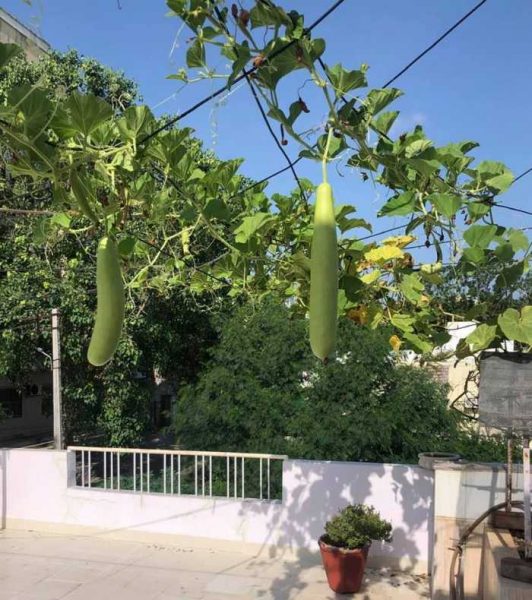
‘Terrace farming for healthy life, zero virus fear’
Udaipur : Many homes in the municipal limits of the city are converting their terraces into farmlands. People are getting back in touch with nature through their terrace gardens where they are growing vegetables to meet their daily culinary needs. Also they point out the therapeutic benefits of having a farm on the rooftop as it keeps the home cool during extreme hot weather.
The planters are using almost anything from wooden crates to plastic bottles, recycled plastic tumblers , fiber planters and even grow bags. Tomatoes, lady finger, cucumber, chillies, bottle gourd, ridge gourd, spinach, methi leaves are the most commonly vegetables being grown in roof gardens. Many professionals and homemakers said they started growing vegetables fearing the corona virus since the vegetable markets turned into super spreader of the disease, “ Excessive use of chemicals and pesticides had always remained a concern however, the lockdown gave ample time and reason to set up a terrace garden.
I am growing tomatoes, chilly, brinjal, Turai, dhaniya etc which comes in use almost daily” says Deepti Sharma, a lecturer at the University’s Law college. The teacher have been using discarded plastic cans to grow the plants that have thrived well with home made manure.
Sudhir Verma, a senior officer of the agriculture department has some 40 pots planted with brinjal, capsicum , pumpkin, bottle gourd and other vegetables.” We are using not only earthern pots but plastic cans and discarded mineral water bottles too. Cocopeat, cow dung, vegetable peels etc are being used as manure and the produce is completely organic which we consume fearlessly” he says. He has some brinjal plants even one year old from which over 10 kilograms of the produce has been harvested.
Gyan Prakash Soni, a retired superintendent engineer who have been cultivating vegetables for months now says “ Almost all veggies we get in the market have pesticides and the organic varieties are more expensive than the commercially mass grown ones because of the farming cost involved. I grow almost all the vegetables needed in the household every day and we don’t have any health concerns due to the harmful chemicals” he said.
Soni has occasionally treated his friends and acquaintances with Halwa made from the milky lauki grown at home and gained applauds. To avoid using pesticides and keep the plants healthy, residents are using home made medicines from mixture of baking soda, cooking oil and water which are sprayed on the leaves to avoid fungal infections and maintain plant hygiene. Neem oil is another option for aphids.






